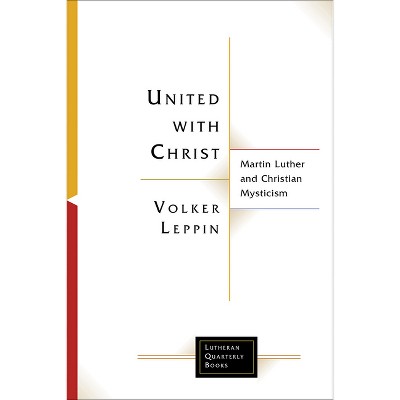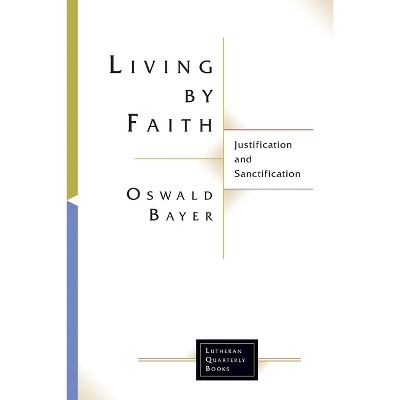Sponsored

Reforming Faith - (Lutheran Quarterly Books) by Anna Marie Johnson (Paperback)
Pre-order
Sponsored
About this item
Highlights
- The Protestant Reformation brought significant changes to the shape of Christian life.
- Author(s): Anna Marie Johnson
- 241 Pages
- Religion + Beliefs, Christian Church
- Series Name: Lutheran Quarterly Books
Description
About the Book
The Reformation was, at its heart, a movement to change the way Christians worshipped, lived, and understood their faith. Wittenberg reformers were deeply involved in efforts to implement these changes. Johnson recasts the story of the early Reformation, highlighting practical efforts to reform practices, institutions, and understandings.Book Synopsis
The Protestant Reformation brought significant changes to the shape of Christian life. Worship, preaching, catechesis, and prayer all changed enormously; a renewed focus on engaging the Bible took the place of other devotional acts; and schools and charitable institutions were reshaped and expanded. The Wittenberg theologians helped instill these new practices and understandings by reforming Protestant preaching, pedagogy, ecclesiology, and piety. Reforming Faith tells the story of the Wittenberg reformers' joint work to establish and support the growing evangelical movement in the 1520s. Although this story is often told as Luther's movement, he worked in collaboration with his colleagues at the University of Wittenberg, and those colleagues made vital contributions to the movement.
Aside from training new pastors, the university's largest enterprise was the publication of biblical and practical guidance by its faculty. The audiences were varied: political and community leaders who wanted to institute the Reformation in their jurisdictions, pastors who had become Protestants after being trained as priests, church leaders who wondered how to revise church practices, and laypeople with nagging questions that the new theology had raised for them. The Wittenberg faculty also participated in early community initiatives to help establish the Reformation, such as opening schools and performing parish visitations. Johnson sets the work of the Wittenberg reformers into the larger context of the Reformation, highlighting their cooperative work by bringing the many writings and initiatives of "the other Wittenberg reformers" to light.











